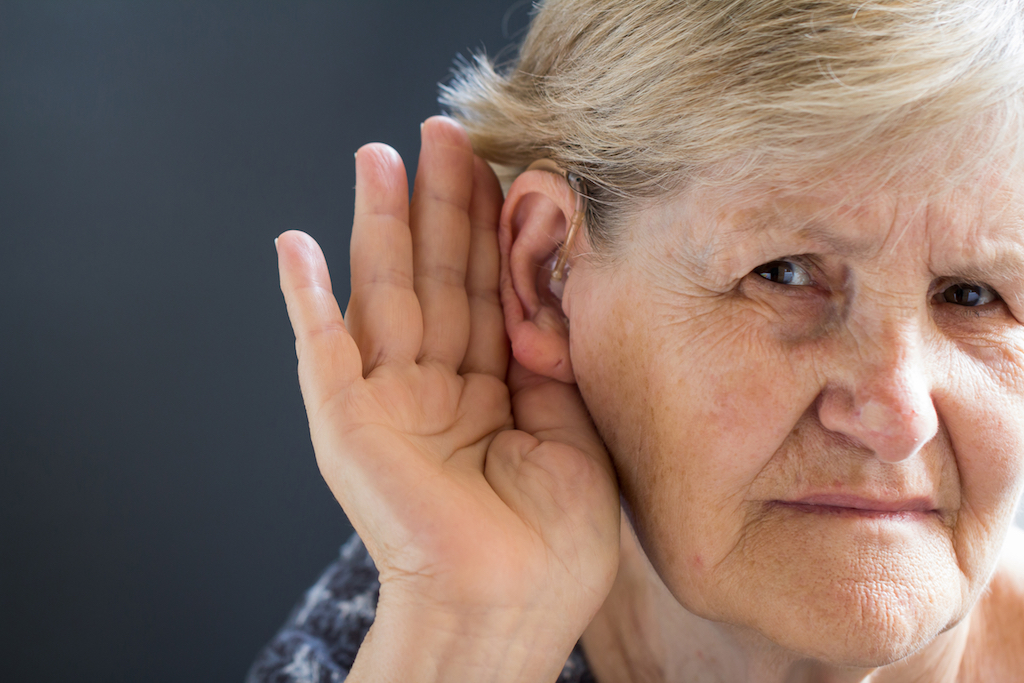RELATED: If You’re Driving Like This, It Could Be an Early Alzheimer’s Sign, Study Says. A new study published in Alzheimer’s & Dementia: The Journal of the Alzheimer’s Association on July 21 set out to examine the relationship between hearing impairment and the development of dementia. Researchers at the University of Oxford’s Nuffield Department of Population Health (NDPH) in the U.K. studied 82,039 men and women aged 60 and older from the U.K. Biobank. They began the study by asking participants to identify numbers that were spoken over a background of white noise. Based on the results, each subject was then categorized as having normal, insufficient, or poor speech-in-noise hearing. The researchers continued to follow up with the participants for 11 years, finding that 1,285 subjects were eventually diagnosed with dementia based on health and death records. Data showed that those in the insufficient speech-in-noise hearing group saw a 61 percent increased risk of developing dementia compared to those with normal hearing abilities, while those in the poor group saw a startling 91 percent jump. Data from the study also showed that the risk of dementia remained the same when isolating cases over time, finding a similar likelihood of cognitive decline after nine years as within three. This points toward the possibility that hearing impairment could be considered an early symptom of dementia and act as a potential warning sign. “While most people think of memory problems when we hear the word dementia, this is far from the whole story,” Katy Stubbs, MD, of Alzheimer’s Research U.K., said in a statement. “Many people with dementia will experience difficultly following speech in a noisy environment—a symptom sometimes called the ‘cocktail party problem.’ This study suggests that these hearing changes may not just be a symptom of dementia, but a risk factor that could potentially be treated.” RELATED: 91 Percent of Older Adults With Dementia Have This in Common, Research Says. Other researchers theorize that the relationship between dementia and hearing loss is the direct result of a lack of stimulus, with imaging studies showing that your brain can begin to struggle once it stops receiving as much input from your ears as it’s accustomed to. “Deterioration of the peripheral hearing apparatus over time decreases input to the primary hearing centers of the brain,” Ana H. Kim, MD, director of otologic research at Columbia University Herbert and Florence Irving Medical Center in New York City, told Healthline in 2018.ae0fcc31ae342fd3a1346ebb1f342fcb Eventually, the primary hearing centers of the brain weaken. “This then creates a vicious cycle of declining hearing capacity, worsening executive function, and increasing risk of dementia,” Kim explained. RELATED: For more up-to-date information, sign up for our daily newsletter. While some have previously theorized that the self-isolation that hearing loss can bring on is often responsible for the onset of dementia, the new study found almost no evidence to support that claim. Instead, the researchers concluded that hearing impairment might be one way to spot the disease before it fully develops and address specific issues to stop it in its tracks. “Dementia affects millions of individuals worldwide, with the number of cases projected to [triple] in the next few decades,” Thomas Littlejohns, MD, senior author of the study and senior epidemiologist in the NDPH, concluded in a statement. “However, there is growing evidence that developing dementia is not inevitable and that the risk could be reduced by treating pre-existing conditions. Whilst preliminary, these results suggest speech-in-noise hearing impairment could represent a promising target for dementia prevention.” RELATED: If You Notice This in Your Mouth, Your Dementia Risk Is Higher, Research Shows.



